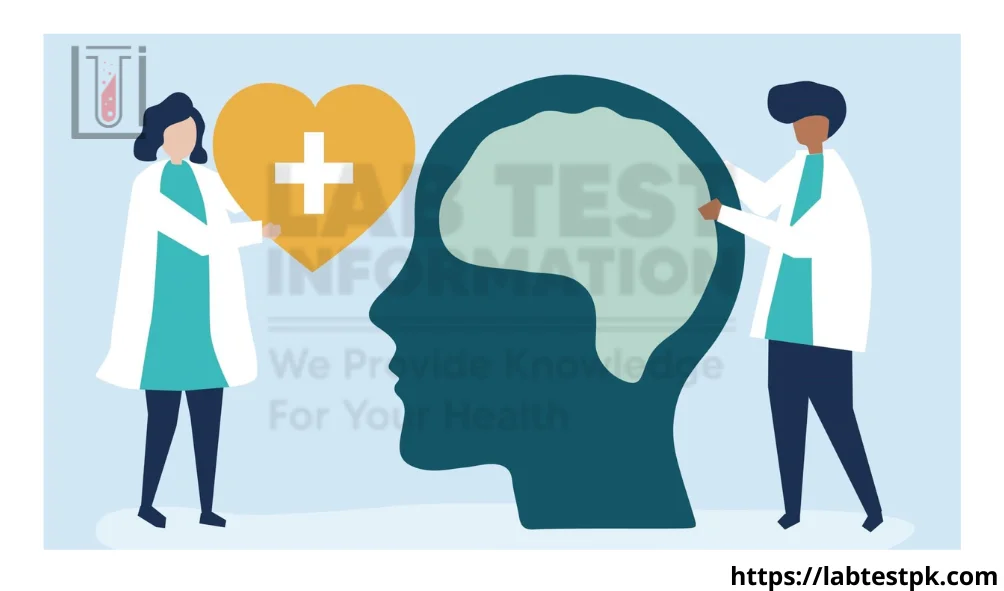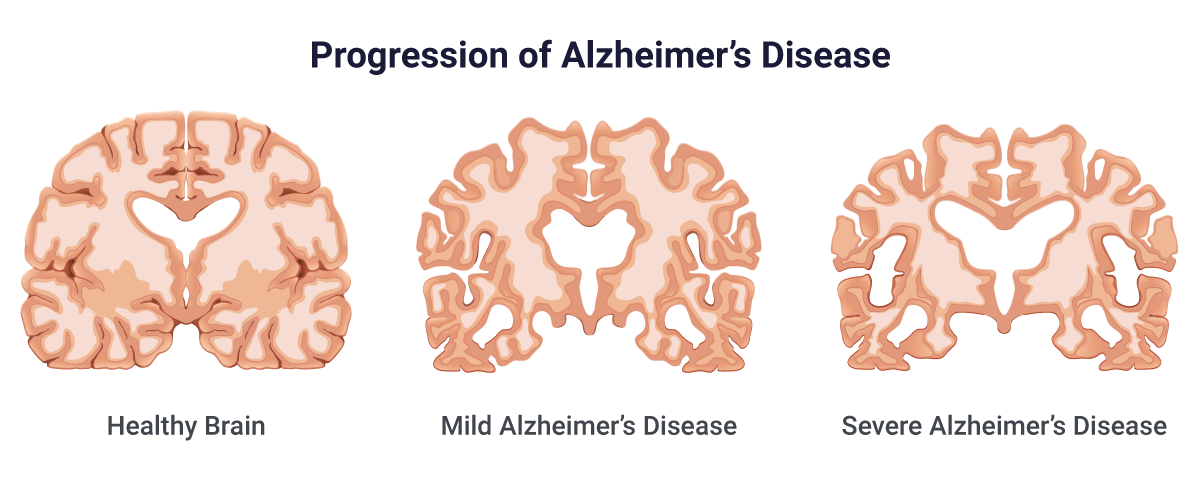Alzheimer’s Disease symptoms
Alzheimer’s Disease symptoms are the most common form of dementia and degenerative disease characterized by progressive impairment in memory, cognitive function, judgment. language, and activities of daily living. Most people diagnosed with Alzheimer’s are older than age 60. The disease can occur in people 30 30,40, and 50 years of age.
Types of Alzheimer’s Disease
There are two types of Alzheimer’s disease.
a) Sporadic Alzheimer’s disease:
- Not Inherited
- About 95% of Alzheimer’s disease is sporadic
b) Familial Alzheimer’s disease:
- Inherited Type
- Approximately 5% of Alzheimer’s disease is familial
Causes of Alzheimer’s Disease
- The plaques are found between the dying brain cells, and they are made from a protein known as beta-amyloid, and block the normal signals that move through the brain.
- Another protein is called tau, the Accumulation of which forms tangles within brain cells.
Risk Factors for Alzheimer’s Disease
- Diabetes
- Family history
- Head injuries
- Depression
- Obesity
- Less Active lifestyle
- Hypertension
- Age
- Down Syndrome
- Smoking, Viral Infection
- Myocardial Infection
- High Blood pressure, Head Trauma
Stages of Alzheimer’s Disease
- Stage First (Mild)
- Stage Second (Moderate)
- Stage Third (Severe)
1- Stage First (Mild)
- Mild memory impairment
- New learning defects
- Personality changes
- Sadness
- Confusion and delusion
2- Stage Second (Moderate)
- Moderate memory impairment
- Difficulty in recall
- Disorientation
- Disturb sleep pattern
- Hallucinations
- Personality changes
3- Stage Third (Sever)
- Sever memory impairment
- Urine and stool incontinence
- Coma
- Swallowing difficulty
- Increase irritability
- Weight loss
- Loss of appetite
- Risk of infection
Symptoms of Alzheimer’s Disease
- Forgetfulness
- Memory loss
- confusion
- Mood and behavior changes
- Irritability and aggressiveness
- Changes in sleeping habits
- Ask questions respectively
- Hallucination
- Difficulty in eating and drinking
- Weight loss
Diagnosis of Alzheimer’s Disease
1- Physical Examination
- Balance
- Coordination
- Sense of sight and hearing
- Ability to get up from a chair
- Walk across the room
- Muscle tone and strength
- Reflexes
2- Medical History
3- CT Scan and MRI
4- Single photon emission computed tomography
5- Positron emission tomography
6- Vitamin B12 deficiency
7- Thyroid function test
8- Neurological examination and MMSE
9- Electroencephalogram
Prevention of Alzheimer’s Disease
- Exercise regularly
- Proper sleep
- Social engagement
- Avoid smoking
- Use Healthy food
Treatment of Alzheimer’s Disease
- Some drugs reduce symptoms, but no drug can prevent the ongoing death of brain cells
- Use neuroleptic drugs
- Antioxidant( Vitamin E) , NSAIDs
FAQs:
What is Alzheimer’s disease?
- Alzheimer’s disease is a progressive neurodegenerative disorder that affects the brain, leading to memory loss, cognitive decline, and changes in behavior. It is the most common cause of dementia.
2. What are the early signs of Alzheimer’s disease?
- Early signs may include memory loss, difficulty solving problems, confusion with time or place, and challenges in completing familiar tasks. Changes in mood and personality can also be early indicators.
3. Is Alzheimer’s disease a normal part of aging?
- No, Alzheimer’s disease is not a normal part of aging. While age is a risk factor, Alzheimer’s is a specific medical condition that goes beyond typical age-related changes in memory and cognitive function.
4. What causes Alzheimer’s disease?
- The exact cause is not fully understood, but it involves a combination of genetic, environmental, and lifestyle factors. The accumulation of abnormal proteins in the brain, such as beta-amyloid plaques and tau tangles, is a hallmark of the disease.
5. Can Alzheimer’s disease be prevented?
- While there is no definitive prevention, certain lifestyle factors such as regular exercise, a healthy diet, mental stimulation, and social engagement may contribute to brain health and reduce the risk.
6. How is Alzheimer’s disease diagnosed?
- Diagnosis involves a thorough medical history, cognitive assessments, imaging studies (such as MRI or CT scans), and sometimes blood tests to rule out other potential causes of cognitive decline.
7. Is there a cure for Alzheimer’s disease?
- Currently, there is no cure for Alzheimer’s disease. Treatment focuses on managing symptoms, and medications may be prescribed to temporarily improve cognitive function or manage behavioral symptoms.
8. How does Alzheimer’s disease progress?
- Alzheimer’s is a progressive disease that worsens over time. In the early stages, individuals may experience mild memory loss, but as the disease advances, it can affect daily activities and eventually lead to a loss of independence.
9. Are there support services for individuals with Alzheimer’s and their caregivers?
- Yes, various support services, including support groups, counseling, and community resources, are available for individuals with Alzheimer’s and their caregivers. These services can offer assistance, education, and emotional support.
10. Can Alzheimer’s disease be inherited? – While there is a genetic component, most cases of Alzheimer’s disease are not directly inherited. However, having a family history of the disease may increase an individual’s risk.



[…] Diarrhea: The hallmark symptom of C. difficile infection is diarrhea, which can be mild to severe. The diarrhea is often […]
[…] Clinical Decision-Making: The results of anti-centromere antibody testing, along with other clinical and laboratory findings, can help healthcare providers make informed decisions about patient care. This may include monitoring for specific complications associated with systemic sclerosis, such as pulmonary arterial hypertension. […]
[…] risk of developing Alzheimer’s disease at an earlier […]
[…] Difficulties: Difficulties with sucking or swallowing, often due to cleft lip and palate or other oral […]
[…] or chromosomal abnormalities during pregnancy. This screening can detect conditions such as Down syndrome, cystic fibrosis, and neural tube defects. It helps expectant parents make informed decisions about […]
[…] usually last for a week or so. But sometimes dengue fever can develop into a much more serious disease called dengue hemorrhagic fever […]